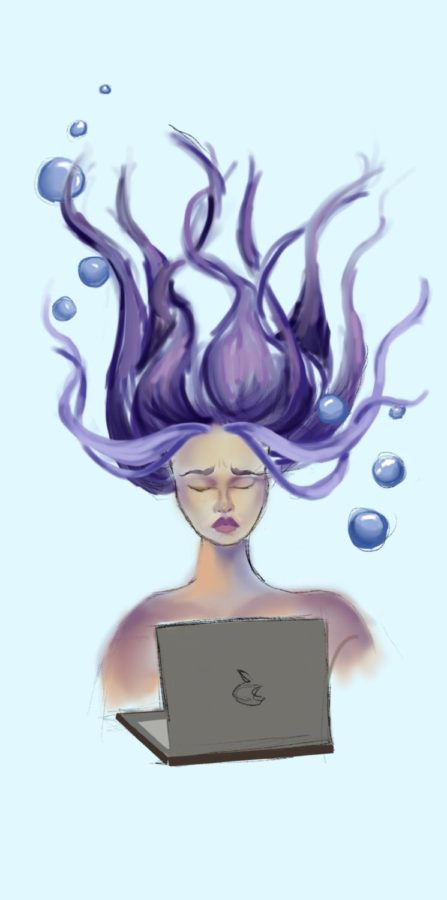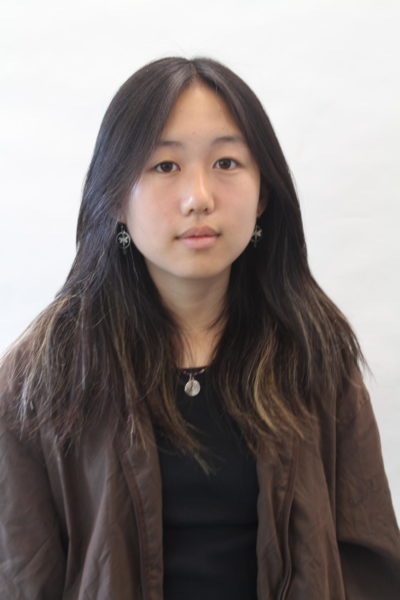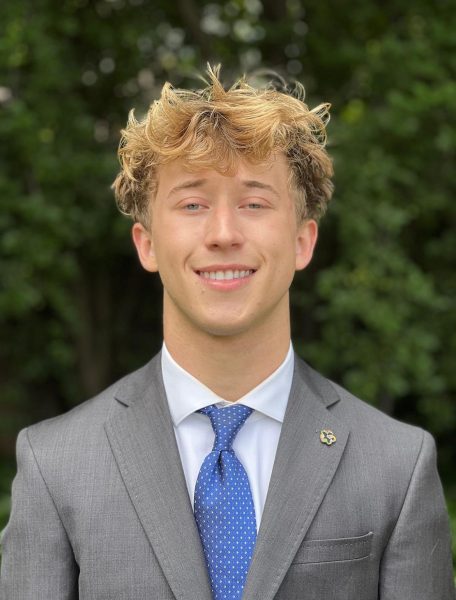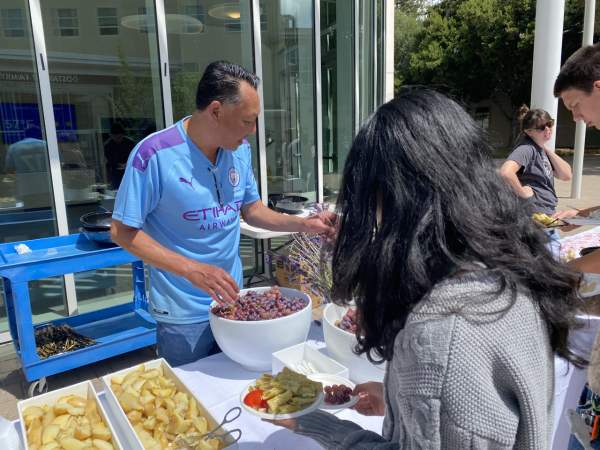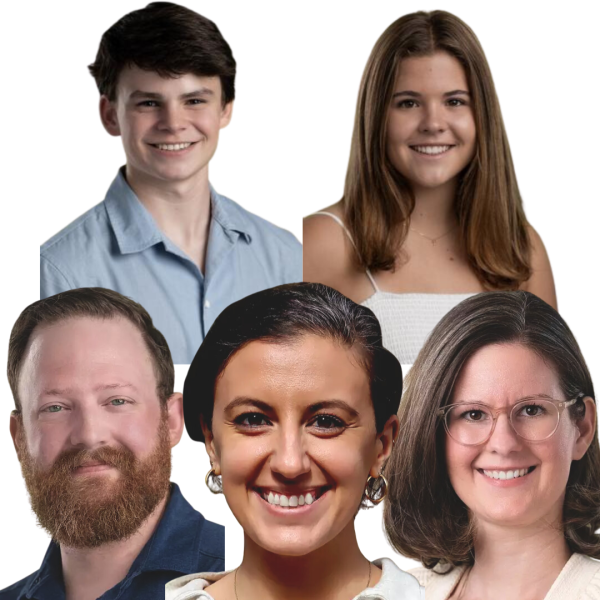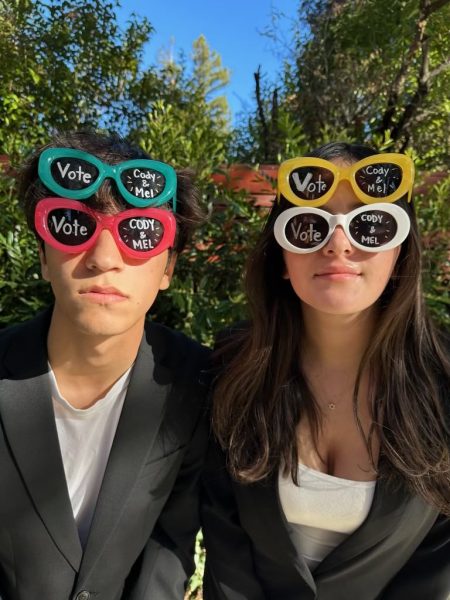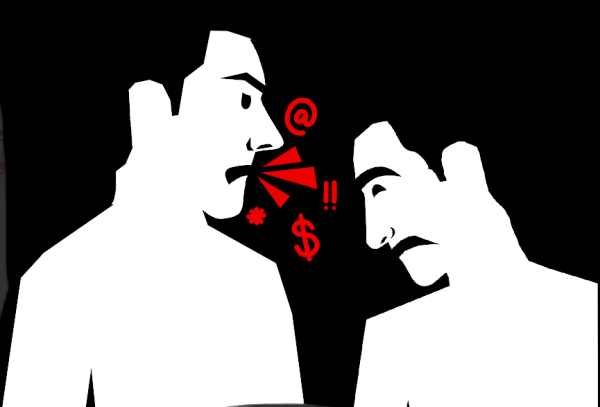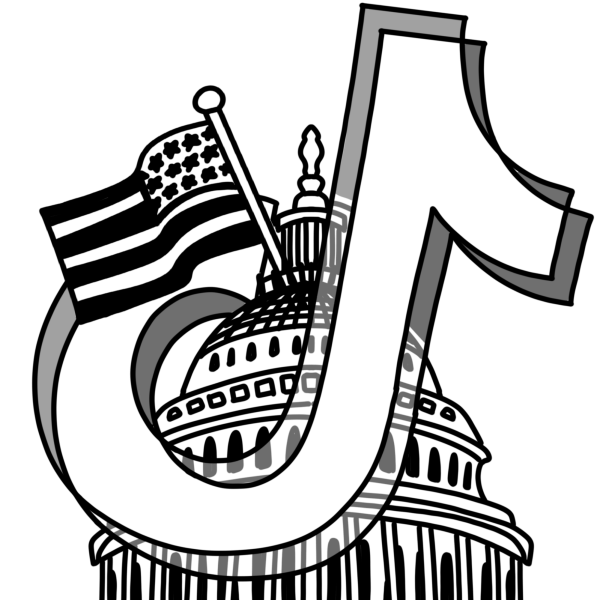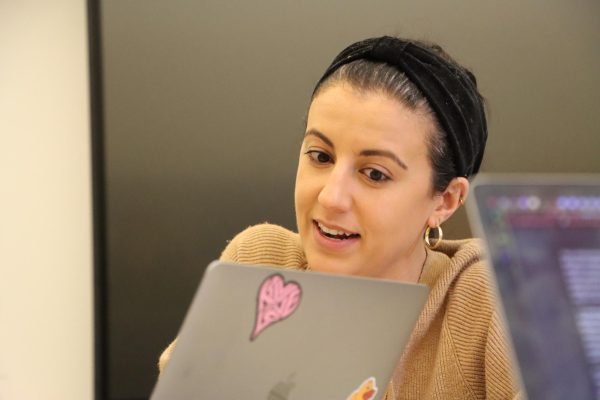The Panorama Student Wellbeing Survey Informs Faculty
Students share details about their wellbeing on the Panorama survey. Staff illustration: Dorinda Xiao.
March 9, 2022
The Panorama Student Wellbeing survey was first announced in November of 2020, administered to Upper School students in December of the same year, and it continues to be administered annually as of 2022. All Upper School students must take the survey, but the survey’s results and impacts are not shared with students.
According to Upper School Counselor Jake Fauver, the school conducted the survey for several reasons, mainly to better understand student wellbeing at Menlo. “The Panorama survey captures a wide array of feelings related to academics, social-emotional wellbeing, growth mindset, emotion regulation, supportive relationships […]. The results show where there are trends and, for example, what 9th graders are experiencing versus 11th graders,” Fauver said. The survey also gives the school an idea of what isn’t necessarily working and what needs to be fixed.”
For example, after the survey showed trends of students being detrimentally affected by hybrid learning, faculty implemented tools for students to utilize. “Last year, when we did the survey, we saw an overwhelming trend, […] when students were online and hybrid, [they reported] a lot of stress and anxiety,” Dean of Student Life Programs and Freshman Class Dean Eve Kulbieda said. “So what we decided to do was implement the ‘Hit Reset’ program, so that meant that we took some student life blocks, and we made them free time to do one of four things.”
The survey also informs faculty on how they should help students, as it tells faculty what curriculum would be useful for different classes in advocacy. Moreover, the survey helps faculty change advocacy programming in ways that can optimize how they support students and help them thrive, according to Kulbieda.
According to Upper School Counselor Tracy Bianchi, surveys may continue to be collected throughout upcoming years. “It is important to compare results and provide not only our direct offices and availability for students that wish to discuss their concerns or school issues in person, but also to provide a safe space to add their thoughts and comments in more of an anonymous setting,” Bianchi said.
However, this year’s survey had a slightly different focus than the survey administered in 2020, as it focused more on how students felt about their English, math, science, history, and language classes as opposed to the previous year’s focus on students’ home lives, according to Fauver. This change was made due to collaboration with the Wellness Committee, a part of the Upper School student council.
Senior Kate Richardson, leader of Mental Health @ Menlo and the Wellness Committee, helped drive these changes to the survey. “A lot of the questions [last year] were very homelife driven [and] a lot about students’ habits outside of school, and there was a limited amount of academic feedback […]. What we kind of pushed for this year is asking for more feedback on academic workload, which was implemented,” Richardson said.
Richardson believes that the survey is important for several reasons. “I believe this survey is incredibly important in the way that it creates an open communication channel between the administration and students. I think the anonymity gives students a space to disclose things they wouldn’t normally, which allows the administration to better craft a school that addresses the direct needs of the students,” Richardson said. “Surveys like this […] allow them to get the best, most accurate understanding of where the student body is at emotionally, academically, so on and so forth.”
Similar to Richardson, junior Malia Chavinson agrees that the survey is a critical outlet for students to openly share their mindsets. “[The survey] allows administrators to have a data point to make decisions about student’s health, like pushing start times back and having more counselors available […] in addition to serving as a self-reflection opportunity for the students who take it to check in with themselves,” Chavinson said.


